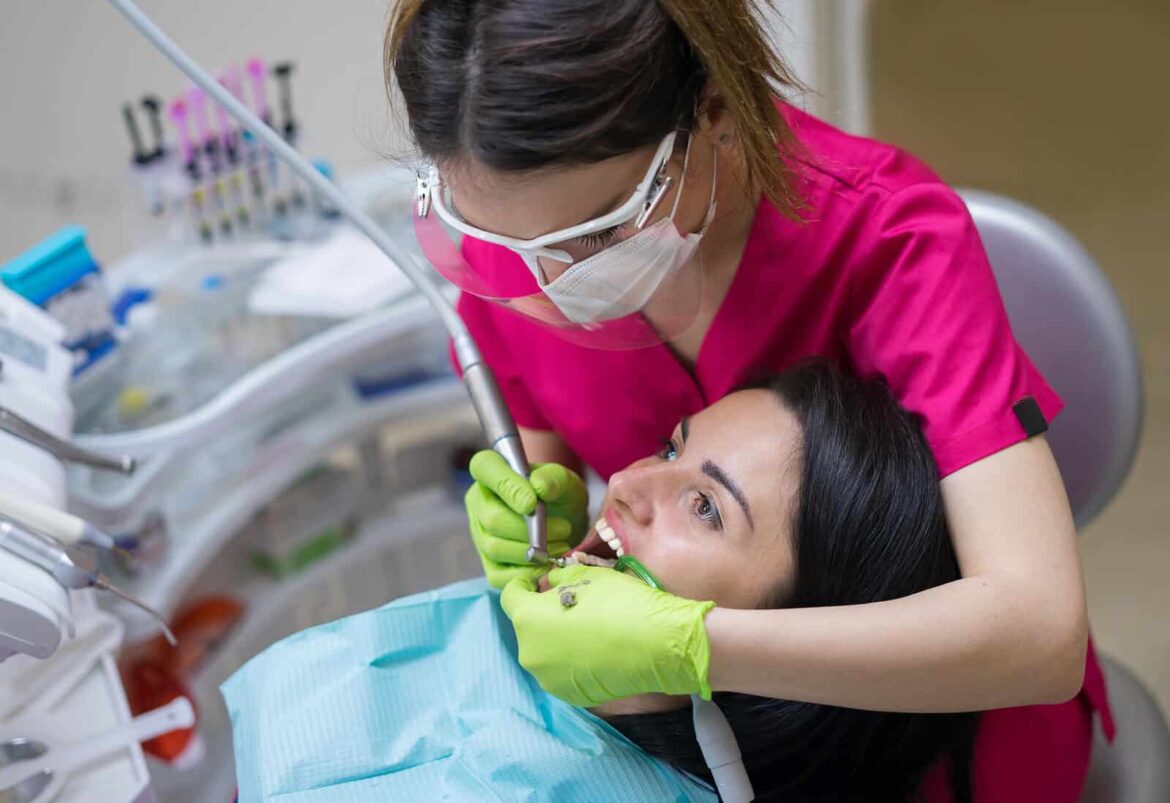823
Having a molar tooth extracted is often medically necessary. However, the procedure is usually routine for the dentist
Molar extraction: What you need to know
When the dentist tells you that a molar has to be extracted, you are usually not happy about it. However, there is little reason to worry: the minimal procedure can be carried out in the surgery itself under anesthetic and usually only takes a few minutes.
- First, after the syringe has taken effect, the gum and the root canal are detached from the tooth. This is important to avoid removing or damaging more tissue than necessary.
- The tooth is then loosened with pliers. This step is usually the most unpleasant because you can hear it very clearly.
- The loosening movements can be felt painlessly despite anesthesia and unfortunately can also be heard well, as they are transmitted through the jawbone to the skull and the auditory ossicles.
- Finally, the tooth is extracted. The dentist then treats the wound with a cotton ball, which prevents heavy bleeding and helps the wound to close. You have to bite on it for a few minutes
- With the exception of wisdom teeth, the gap left by an extracted molar is often filled with dentures. However, this only happens after a few weeks when the wound has healed.
- The tooth extraction itself costs you nothing, these costs are covered by health insurance.
- With a dental prosthesis, however, it can unfortunately be expensive. Although health insurance usually covers 50% of the costs, costs of between 500 and 2,200 euros are incurred, depending on the type of replacement. With a bonus booklet, in which you can provide proof of regular visits to the dentist over 5 years, there is even greater financial support.
- Dental crowns are cheaper and tend to be in the lower range of the sum mentioned. Dental implants, on the other hand, are more expensive.
After tooth extraction: Tips for wound healing and pain relief
After a molar has been extracted, it is important to pay attention to wound healing and pain relief. Here are some tips to help you do this:
- Avoid smoking, alcohol and hot drinks for the first 24 hours after the procedure as they can delay wound healing.
- Refrain from eating solid foods and chew on the other side of your mouth. Instead, eat soft foods such as soups, yogurt or pudding.
- Avoid physical exertion and keep calm to avoid bleeding.
- Use ice packs or cold compresses to reduce pain and swelling. Place these on the affected area for 10-15 minutes and repeat this every few hours.
- Take painkillers such as ibuprofen or paracetamol to relieve pain. However, avoid aspirin as it can thin the blood and cause bleeding.
- Carefully rinse your mouth with salt water to keep the wound clean and avoid infection. However, avoid rinsing for the first 24 hours.
